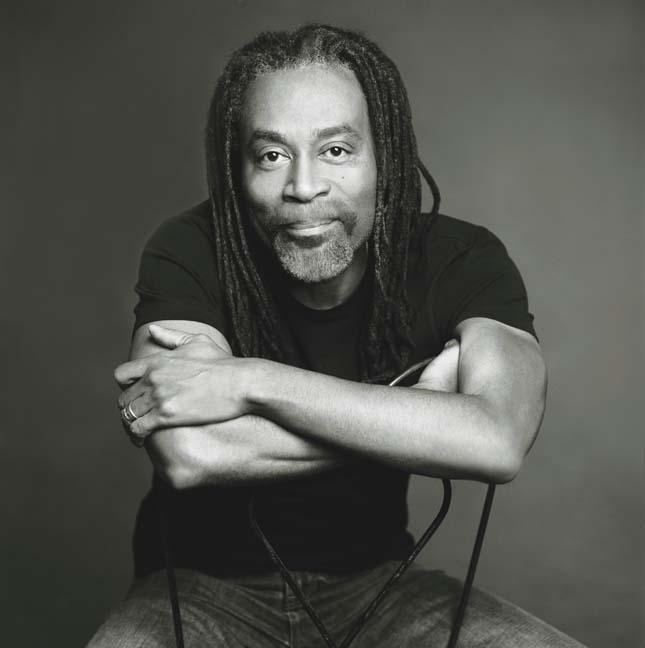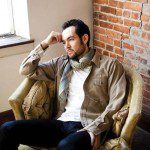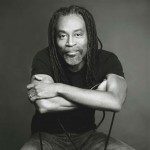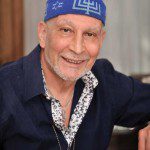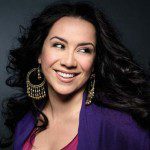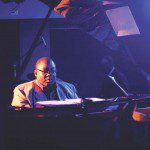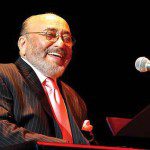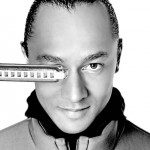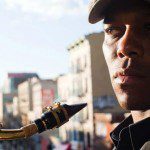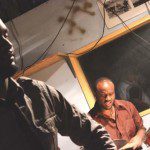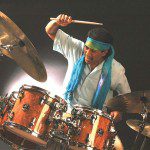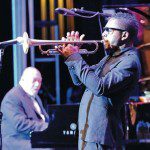Charles Fishman, the executive producer of the DC Jazz Festival, likes to compare jazz to basketball, a sport he loves.
“Watch a game sometimes,” he said. “You’ve got the basic positions: center, forward, guards, and they all have their tasks but operate as a team. Just so, a jazz trio or quartet works the same way. Everybody works off a basic theme, plays together, and then you improvise—like a great shooter, or dribbler or passer—off of that. It’s a team thing where individuals shine, and that’s what your solo is, a riff on what everybody’s working on. The first solo sort of sets the plate, and the next guy works off of that and incorporates and creates.”
Fishman is a huge Celtics fan, and he could probably talk about Red Auerbach and Bill Russell and the Celtic glory teams for hours on end.
If jazz is like basketball, then talking with Fishman about the festival, which kicked off this week and runs through June 13, is a little like jazz itself. The talk inevitably leads to the whys and wherefores of jazz, true stories and tall tales about the music and musicians. In the course of things, you know why you’re here, where you’re going and what you’re going to talk about—like knowing the lyrics to “My Funny Valentines,” then playing off the melody.
That conversation encompasses a lot for Fishman. He can talk jazz history from his longtime stint as Dizzy Gillespie’s manager. He can talk current news and he can talk jazz futures, and the DC Jazz Festival is one of the exemplary and characteristic events of the state of jazz and where it is going.
“The world of jazz today is different,” he says. “In a weird way, it’s sort of happening off the radar, but it’s one hundred percent bigger in terms of audiences and artist, not to mention the range of music and venues, than what it used to be. What you’re seeing now is the international explosion of jazz. It’s a brave, interesting new world, let me tell you. Jazz is being listened to and played in Latin America, in Japan, in the Middle East and Africa. Jazz is different, the music is more expansive.
“But then, it’s always been like that, jazz is fluid. It moves, it soars and it changes, and you can see that in the festival.”
This is a festival that, since it started out as the Duke Ellington Jazz Festival seven years ago, has grown like topsy to the point where an almost inevitable name change occurred last year. “We wanted a national, an international presence,” Fishman said. “It’s about the city, and we wanted the city to be presented as a center of jazz.”
DC is for Jazz Lovers
“One of the things we’ve always wanted to do is showcase Washington as a jazz city,” Fishman said. “It’s got such a rich tradition in the U Street area—back in the days of Ellington, the big bands, the big singers and performers who came here to the clubs and venues. We still have that today.
This year, with a slew of sponsors, one of the key components is Microsoft Bing—a search engine if you haven’t heard—which is joining the festival in bringing new musical education programs to the city and which will co-present the Jazz on the National Mall free concert on June 12, featuring Toby Foyeh and Orchestra Africa, Frederic Yonnet, a local favorite, the great Cuban singer Claudia Acuna, Roy Hargrove and the RH Factor, and the Eddie Palmieri All-Star Salsa Band.
Bing, which supports the festival’s year-round Roberta Flack Music Excellence Program, will also sponsor three master classes and a financial literacy workshop for professional musicians at the Bohemian Caverns, the “official” club for the festival.
As for presenting DC as a jazz town, there is the festival’s Jazz in the ‘Hoods program, being presented all over the city with 80 performances at 41 museums, clubs, restaurants, hotels and galleries, and featuring some 70 DC-based jazz groups. “It’s a chance to show off the city and what it is,” says Fishman. “This diverse city of long-standing cultural and jazz history… We have a lively jazz scene here, with lots of gifted, talented young players, which says a lot about what jazz is—a continuing, ongoing kind of music with a rich mentoring and educational component.”
You’ll get to sample jazz as it’s played in the neighborhoods, including Adams Morgan, Capitol Hill, Downtown DC, Dupont Circle, Chinatown, the H Street Corridor, Georgetown, the U Street Corridor, Woodley Park and others.
For good jazz in this city, says Fishman, there are a number of standout venues: the Bayou—a new club on U Street—the Black Fox Lounge, Cashion’s, the Grill from Ipanema, Twins and Bohemian Caverns. Bohemian Caverns, a huge supporter and key venue for the festival, will feature Cyrus Chestnut June 3 and 4, Antonio Hart June 8 and 9, and the Heath Brothers June 10 and 11.
As usual, the Festival is not without its big headliners. Bobby McFerrin, a multi-talented, big-name performer with a huge pop hit (“Don’t Worry Be Happy”) to his credit will be at the Warner Theater June 11, performing with the Howard University Afro Blue Reunion Choir.
As always, the festival will pay tribute to legendary performers. This year, two life time achievement awards will be presented, to the brilliant saxophonist Jimmy Heath and the incomparable Puerto Rican pianist Eddie Palmieri. Both men have left a legacy of teaching, creativity, composition and respect. “These two men have dedicated their lives to jazz as an art form, educational tool and unifying force,” Fishman said. Palmieri is a nine-time Grammy winner noted for his unique blend of jazz and Latin rhythms, with a career spanning 50 years as a composer, pianist, leader of famed salsa and Latin bands and smaller ensembles. Palmieri will be part of the free Jazz on the National Mall concert June 12.
Jimmy Heath is the second oldest brother of the legendary Heath Brothers. He’s a major composer, artist, performer, mentor and jazz icon who has performed on over 100 recordings with his own group and with Miles Davis and Dizzy Gillespie.
Think jazz isn’t hip or doesn’t hop? Check out the DC Jazz Loft Series, with edgy new national jazz bands performing at such eclectic sites as Red Door, the Fridge (part art gallery, performance space, and classroom and music venue at Eastern Market) and Subterranean A near Logan Circle.
Concluding the festival will be “A Night in Treme: The Musical Majesty of New Orleans” at the Kennedy Center, with the HBO Series’ star Wendell Pierce, the Rebirth Brass Band, Dr. Michael White, trombonist Big Sam Williams and trumpeter James Andrews.
“It’s grown, no doubt about it,” Fishman said about the festival. “But you can see what a world it encompasses. There’s so many different kinds of music we now call jazz, and it originated with the legendary pioneers like Gillespie, the Duke and the Count, Bird, Miles, Monk.”
When you listen to Fishman, sitting in his office—which is more like an improvisational shrine to Jazz and Dizzy and clutter—you feel a lot of love for the music. He’s like John the Baptist for the great American musical invention.
We talk about the neighborhood, we told stories about concerts we’d attended over the years, about the great tribute concert to Elllis Marsalis two years ago at the Kennedy Center: “That was maybe one of the best all-time concerts, period,” said Fishman.
And there’s Moses, Fishman’s six-year-old son, a preternaturally charismatic boy who may one day run the festival. “He’s taking piano lessons now,” Fishman said proudly. “He gave up the drums.” For a parent, even one as musically inclined as Fishman, a kid giving up drums can’t be all that bad.
For a complete list of performances, venues, times and dates, jazz buffs should go to the festival website at DCJazzFest.org or pick up a festival program guide which can be found all over Washington.
- Bobby McFerin

